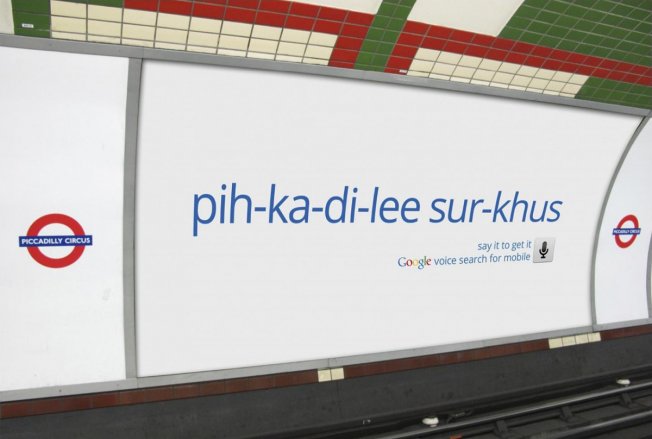
SEO and Social Predictions for 2016
I love this time of the year when we can look back at the previous year of evolution and to then think what the future holds. I’d like to say it’s going to be more of the same but, everyone knows in SEO, the only certainty is uncertainty.
To survive as an SEO in 2016, it will mean we all need to expand our knowledge, SEO now stands for Strategies for Earned and Owned with a focus on long-term discoverability and smarter content marketing. Our job is no longer just driving Google (Bing/Yahoo) searchers to top rankings, it’s also driving them to the platform experience – be it mobile, social, or apps.
For this reason the team’s predications for 2016 are far and wide.
Strategies for Owned and Earned
As the SEO sphere of influencers increases to include new technologies and platforms, SEO will continue to come out of the shadows and play a larger part of the marketing mix.
With the increasing demands for better user experience, big data and smarter content, SEO will continue to grow its influence across digital marketing. With this growth there will be a greater focus on KPI’s outside of just rankings. Wider traffic and exposure metrics that take into account the breadth of what is being done in the name of SEO will gain greater prominence when reporting success in SEO.
As well as this as we will move into a “no search” future. SEO content campaigns will need to be supplemented by paid media spend to ensure fresh content is recommended Google Now and Facebook.
Apps, apps and more apps
All search engines will continue to display app content and purchases into the SERPS as consumer behaviour drives mobile usage. The growth of app streaming by Google blurs the line between mobile web and app. Deep-linking, app indexing, and now app streaming are all key areas for SEOs in 2016. App store optimisation, mobile article formats from Google, Apple and Facebook, and the increasing importance of app content in organic search all mean we will be more focused on a mobile world.
Voice search and structured data
People don’t like searching Google by typing when they’re on the move, which means they’re now much more likely to simply ask Siri, Google Now or Cortana to find what they’re looking for.
This has already brought about subtle yet profound changes in the way that search works. Structured data and ‘rich snippets’ are increasingly growing in importance as Google and other search engines attempt to directly answer questions by understanding the content they retrieve. Now approximately 19% of queries provide direct answers or rich snippets.
More quality updates to come
It is clear that Google will double their effort at promoting content that satisfy the user intent, not just bots; content that is unbiased and can resonate with the brand name too. In that case, search engine marketing will continue to involve thorough research to meet the expertise that Google wants to see and index it.
At some point this year, SEO digital agencies will have to adhere or die. Google will require from SEO the same quality level that rule other digital channels. That means to create compelling content for the right person, at the right place and at the right moment.
On that note, Google will pay more attention to the creative aspect of the content. In other terms; what’s in it for the end user? Bigger losers should be those that don’t innovate and estimate that sitting on tactics that worked two years ago shouldn’t hurt. Indeed, Google started last year to give very strict directions (Mobilegeddon) on how they see the web in the future and how we must adapt.
As result there will continue to be a multitudes of ‘unnamed’ Google updates (E.g. Phantom III) but this time that can penalise old school SEO tactics – only based on keyword optimisation – while Google is looking for more topical optimisations. With the aim to be an expert in a niche, marketers will have to cover all aspects of a given topic in order to win search results. If it makes sense to the end user, then it will makes sense to GoogleBot.
The Facebook Bubble
Social Media platforms have been developing over the last few years to become gigantic ecosystems, the aim always being to ensure that the platform provides the user with as much information and services as possible so individuals have few reasons to actually leave the site or app. The main player, and the one who has been extremely successful in this field is of course Facebook.
2015 saw Instant Articles being rolled out. This provided publishers with the opportunity to create incredibly diverse and aesthetically pleasing content for their Facebook audiences. It also meant that users do not have to leave the Facebook platform to read the rich content. With this big shift in the way we consume information Facebook has created an opportunity to increase the time spent on site by users.
Now, and throughout the whole of 2016 is the time for the instant purchase on Facebook. One click purchases have been tried and tested by such internet giants as Amazon and has been a phenomenal success. Now it’s the time for Facebook to own a similar option – allowing individuals to purchase with one tap the moment that they see the ad and without having to leave Facebook and trawl through websites, which are often poor quality mobile sites with poor user experience, to get the product that they want.
Instant purchase is likely to be a win all round, perhaps not for the Facebook user’s wallet, but all other parties are likely to see great success from this option.
And on a final note
Schema to go from strength to strength.
What do you think? Do you agree with the teams predictions? Get in touch at info@harvestdigital.com if you would like to discuss your SEO and wider digital strategy with one of the team.
Harvest Digital




